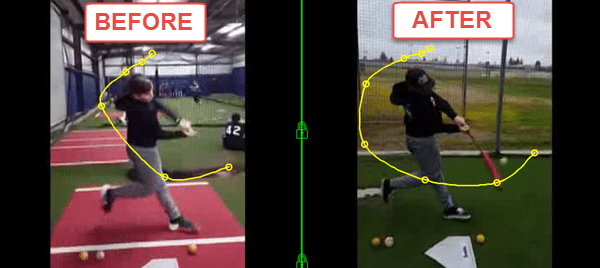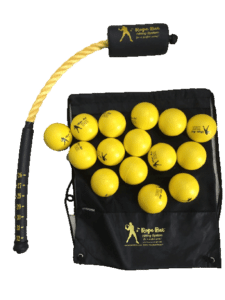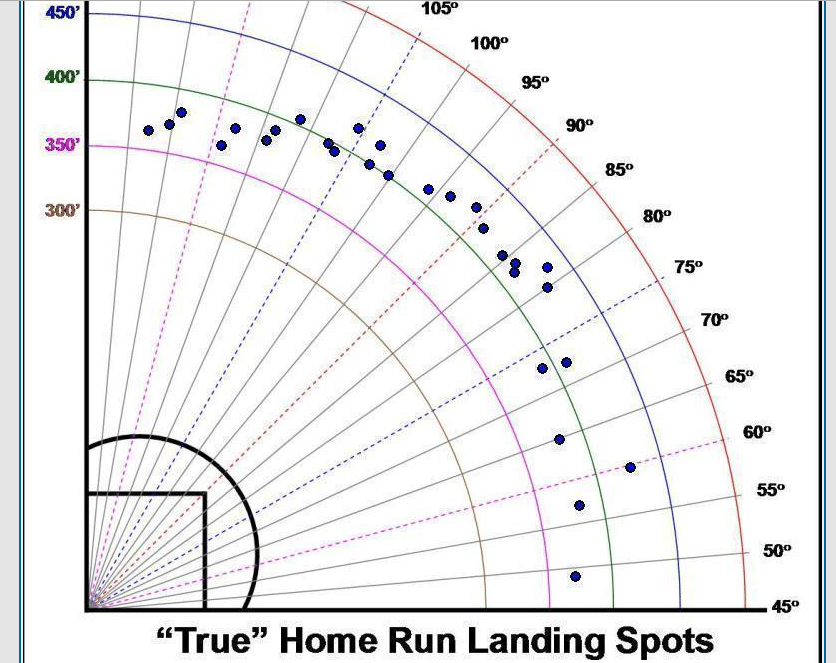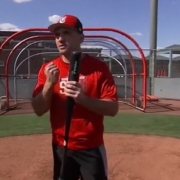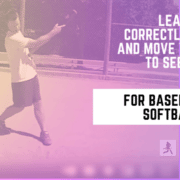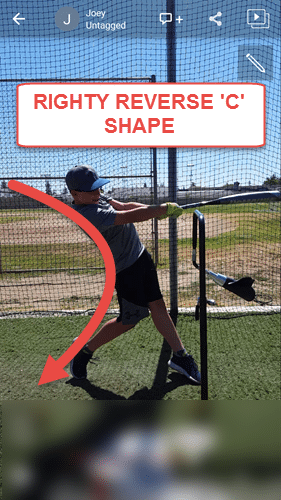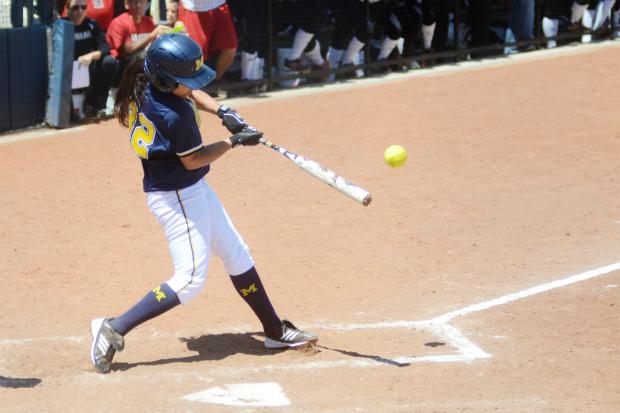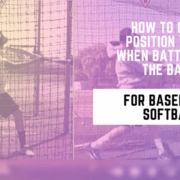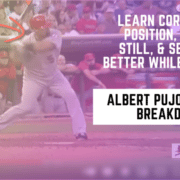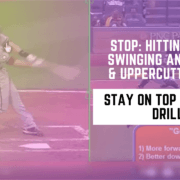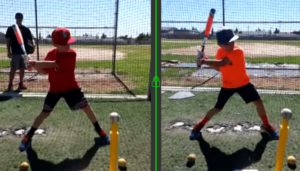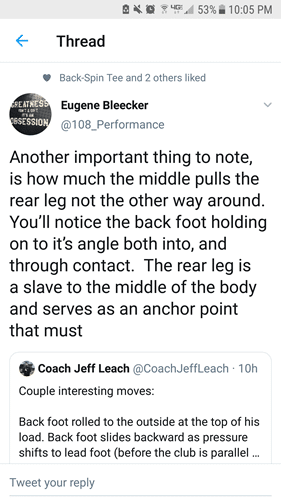Learn the correct head position, keeping the head still, and seeing the ball better while hitting a baseball or softball. Discover how in this Albert Pujols swing breakdown.
Albert Pujols Swing Breakdown: A Big Misunderstanding
People always want to know how to hit the ball harder, with more consistency. And it all starts with how the head moves during the swing. Who better to look at for consistency than Albert Pujols, AKA “The Machine”…
According to Baseball-Reference.com, a few key offensive stats based on his 162-game average are:
- On-Base + Slug% (OPS) – .991…league average is .730
- Batting Average on Balls In Play (BABIP) – .303 (Fangraphs.com)…league average is .300
- Homers – 40
- Doubles – 43
Albert Pujols may not be the same hitter he was with the Cardinals…BUT…what he has working for him is friction-free head movement during the swing. An oftentimes, misunderstood topic.
In this video post, we’ll hold head movement during the swing to the fire of science:
- Albert Pujols: understanding the 1/3 Vision Rule,
- Why breaking the One-Joint Rule bleeds force at impact, and
- Two most common head position mistakes & how to fix…
SCIENCE-BASED TRAINING:
Improve your hitting strategy dramatically by applying human movement principles.
Learn not only how and what to train but also the science behind the methods.
Albert Pujols: Understanding the 1/3 Vision-Rule
One of my readers, Blake Blackwell, took his son to a Tom House pitching camp. For those who don’t know Tom House, he’s the founder of the National Pitching Association. Blake said that Tom House was teaching his pitchers to gear pitch movement for the last 1/3 of the distance to home-plate.
Why?
Studies show that Professional hitters lose sight of the ball within the last 5-7 feet of ball flight. Consider the 1/3 Vision-Rule…
- First 1/3 Distance to Plate – hitter sees the pitcher’s release point out of the corner of the front eye,
- Middle 1/3 Distance to Plate – hitter sees the ball with both eyes, and
- Last 1/3 Distance to Plate – hitter sees the ball with the corner of the back eye.
Late breaking movement adds to the pitcher’s deception because a hitter like Albert Pujols isn’t picking up pitch detail during the last 1/3 of ball flight. You see, peripheral vision (out of the corner of the eye) is about picking up motion, not detail.
Understanding this is important to hitting because you’ll learn…
Why Breaking the One-Joint Rule Bleeds Force at Impact
And upsets vision…
CLICK HERE to watch a demonstration of the One-Joint Rule I did with Shak, a Kansas University Jay-hawks wide receiver. Dr. Kelly Starrett from TheReadyState.com says this about the One-Joint Rule:
“The musculature [in the spine] is designed to create stiffness so that you can effectively transmit energy to the primary engines of your hips and shoulders. If you don’t preserve trunk stiffness while moving from your hips and shoulders, you will lose power and force. The is the basis for the one-joint rule: you should see flexion and extension movement happen at the hips and shoulders, not your spine.”
He then adds…
“Hinging at one of the segments [vertebrae in the neck]…when we put a hinge across the central nervous system, the body recognizes that as a primary insult, or threat to the body, because you’re basically guillotining or kinking the nervous system. You’ve kinked ‘the tube’, so it [force production] just drops off.”
Two Most Common Head Position Mistakes & How-to Fix…
Here they are:
- Chin to chest (a la Andrew McCutchen), AND
- Ear to rear shoulder (a la Bryce Harper).
How do we fix these?
First you have to understand the spine can move Globally or Locally…CLICK HERE to watch this demonstration.
Then, the hitter must understand that their head can ONLY move like it’s rotating on a “spit” (the spine), from side to side. Unless we’re talking about Global Extending or Flexing. In other words, the spine can Globally Flex towards the plate – say on a low pitch – but the head MUST stay in line with the spine as it turns towards contact.
At lastly, train this head movement with variance:
- Setup up five swing rounds,
- On swings 1-3-5, practice keeping the head on a “spit”, turning the head to get the nose behind the barrel (the right way), and
- On swings 2-4, practice moving the chin to chest OR ear to rear shoulder (the wrong way).
Note the difference. I guarantee Albert Pujols makes a conscious effort to keep efficient head movement during his swing. Can you see why pitchers armed with the 1/3 Vision-Rule, and hitters getting excessive head movement by breaking the One-Joint Rule can really affect repeatable power?
Grab This FREE 'Timing Master Class' Video
Struggling to get your hitters ON-TIME in games? Discover HOW TO build effective laser-focused timing, so your hitters can be ON-TIME more often. These principles are validated by REAL science.
Click the button below to access the FREE video that has been downloaded over 6K times!
Click here to 'Get Instant Access'
